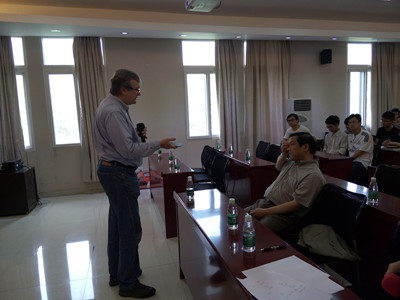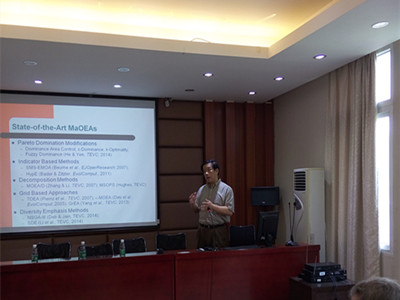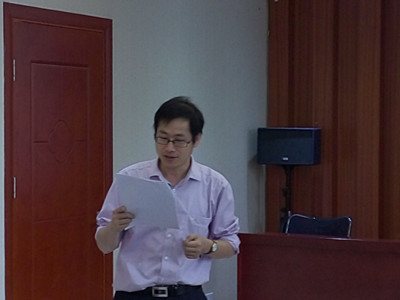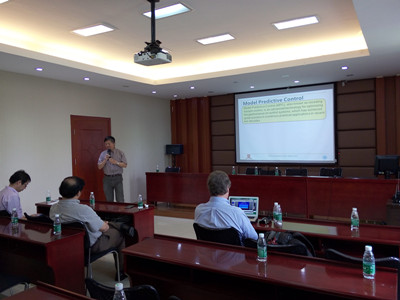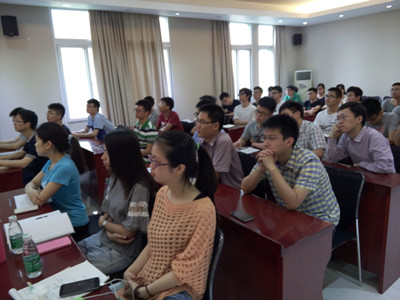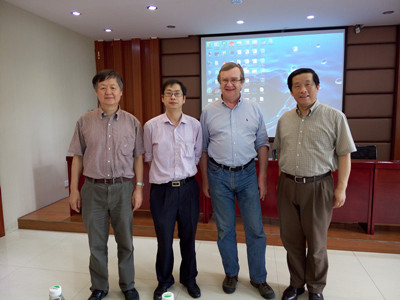On the morning of April 6th, 2015, three professional lectures entitled “Image Processing and Computational Intelligence Methods for Computer-aided Skin Cancer Diagnosis”, “Introduction to Evolutionary Multiobjective Optimization” and “Nonlinear and Robust Model Predictive Control Based on Neural Computation” were held successfully on the sixth floor conference room of Building 3. Professor Maciej J. Ogorzalek, Professor J. Wang and Professor Gary G. Yen were invited to respectively give us a lecture on their research fields. Prof. Yuanqing Li, the Dean of School of Automation Science and Engineering, hosted the lecture.
Professor Maciej J. Ogorzalek, who is a professor of Electrical Engineering and Computer Science and head of the Department of Information Technologies, Jagiellonian University (the oldest academic institution in Poland, founded in 1364) in Krakow, Poland, gave the lecture first. He showed the amazing progress in Biomedical imaging technology and the base of digital image in diagnosis of illness variation and medical analysis. And then, he introduced the most promising method in this area to the students.
After that, Gary, who was an associate editor of the IEEE Transactions on Neural Networks and IEEE Control Systems Magazine during 1994-1999, and of the IEEE Transactions on Control Systems Technology, IEEE Transactions on Systems, Man and Cybernetics and IFAC Journal on Automatica and Mechatronics during 2000-2010, summarized the state of Computational intelligence and evolutionary multiobjective optimization field. Then he expatiated on the deficiencies and the thought of solution while we should optimize plenty of targets.
The last lecture was given by Jun Wang ,who is a Professor and the Director of the Computational Intelligence Laboratory in the Department of Mechanical and Automation Engineering at the Chinese University of Hong Kong. Professor Wang was talking about nonlinear and robust model predictive control based on neural computation. During the lecture, he showed the students the nonlinear and robust model predictive control solution based on feed-forward and feed-back neural networks. What’s more, he demonstrated the ideal characteristics of this solution and provided many simulation results to prove the effectiveness and performance of the proposed method.
Through these lectures, our students gain knowledge in different research fields, and are aware of the latest research results in these areas.
